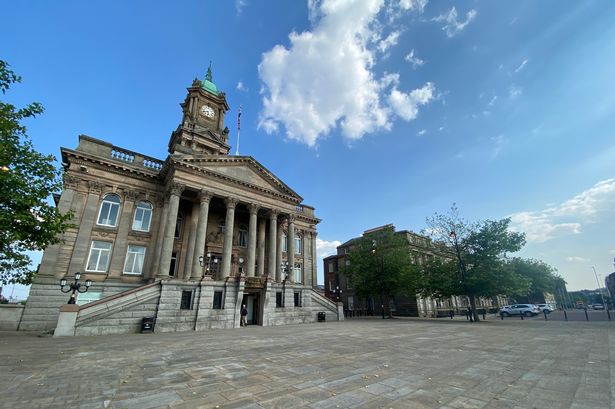Data from the Office for National Statistics reveals a stark economic divide between the eastern and western sides of the Wirral peninsula; with the west having some of the least deprived areas in Merseyside and the east having some of the most.
This east and west divide is defined by a famous piece of transport infrastructure – the M53. Birkenhead and Lower Heswall are only seven miles apart but they might as well be hundreds of miles away when household incomes are considered.
While Gayton and Lower Heswall is the second most affluent area of Merseyside with an average household income of £59,900 a year; Birkenhead Central is the most deprived area of Merseyside with an average household income of just £27,700.
READ MORE: Bonfire night 'hijacked by gangs'
READ MORE:
Similar areas of deprivation are clustered along the east coast of the Wirral with both Seacombe and Egremont making the list of the most deprived areas in Merseyside. On the opposite side of the peninsula areas such as Caldy and Newton are among the area's least deprived.
This divide is well known to people who live on the peninsula and to locals like 70-year-old Elaine O'Brian, who has lived in Seacombe for five years. She said: "I live in sheltered accommodation and it really needs fixing up, my building in particular needs lots of repairs."
Elaine said: "The economic climate has caused the poverty to get and please god I hope it improves you've got young families surviving on food banks and working zero hour contracts."
Why this long-standing divide exists has been debated for decades. Pat Cleary, a Green Party councillor for Birkenhead and Tranmere for the last nine years, blames deindustrialisation in the 80s for the deprivation in Birkenhead.
Pat said: "About 1,000 people were employed in shipbuilding and when that declined there was a failure to address that and replace the income it generated for locals… we talk a lot about levelling up now but we wouldn't need it in areas like Birkenhead if we didn't have levelling down."
Another issue Pat points to is historic town planning. The councillor said: "We have a de facto motorway through the town which connects Chester through to Liverpool which discourages investment because it's so easy to pass right through it. It's a textbook case of how not to do town planning in my opinion."
Angela Eagle is the Member of Parliament for Wallasey: the constituency which includes both Seacombe and Egremont. Angela believes the deprivation in the area has only increased in recent years.
The Labour MP said: "Austerity cut a lot of the help people used to rely on and they were left to fend for themselves. It's widening I've seen child poverty rates in Wallasey rise from 15% in 2015 to 21% now."
Angela also highlighted another reason why this divide exists. She said: "People don't stay in Seacombe they move to more affluent areas when they have a higher income and they then spend that income in their local area. There are other factors such as poor health due to a lot of people working manual jobs and housing where rents are a real problem making it hard for people to aspire to own their home."
Attention now turns to how to close the gap on the peninsula. The borough's food banks are doing so by not just helping people get food but in other ways as well. Richard Roberts is the manager of Wirral Foodbank, he said: "Most people only come to the food bank on average 1.4 times a month so we also help by trying to address the underlying reason someone is relying on it."
In partnership with Citizens Advice, Wirral Foodbank has launched a Foodbank Plus which aims to maximise people's income, reduce debts and solve issues with housing. Richard said: "We endeavour to support people but we have Foodbank Plus to provide ongoing support."
Richard accepts there is a limit to the help his food banks can provide. He said: "The foodbank is there for people but it's a sticking plaster the issues are much more deeper."
Those deeper issues which cause the divide are the ones that can only be fixed by political action. Angela Eagle laid out some of the ways Labour could help tackle deprivation in her constituency once in government. She said: "Strategically we need to create more jobs, we've just been through a period where industrial strategy was a bit of a dirty word but now with the green transition there's huge potential for investment in areas like Ellesmere Port'."
Angela added: "We have to ensure people in areas like Seacombe are supported and take up those jobs."
In Birkenhead, Pat Cleary is focused on the Birkenhead 2040 regeneration plan for the town. He said: "Investment is crucial and the 2040 plan is a marvellous ambition… the council need to get working on it 2040 is only 16 years away longer it takes the more funds get eroded."
Pat added: "Birkenhead as a town has not fulfilled its potential but if we can change perceptions of Birkenhead we can get the investment the area needs."
Don't miss the biggest and breaking stories by signing up to the Echo Daily newsletter here

